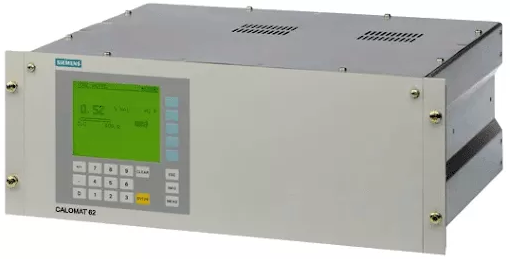Hydrogen gas analysers

There are meters whose role is narrowly focused and even specific, but this does not make them less popular. The hydrogen gas analyser is just one of these: it detects and monitors the concentration of only one component, H2, but it is still very much in demand at production facilities. So let's take a closer look at its purpose, scope of application and key features - so that you understand which model is best to buy.
Why do you need a hydrogen gas analyser
It is understandable why it is used - to determine the H2 content in a timely manner. But why should it be done at all?
The problem is that hydrogen, when mixed with oxygen or air, becomes a fire and explosion hazard. Its leakage can provoke a catastrophe in production, but the naked eye can not notice it, because the gas is colourless and does not smell in any way. Therefore, you need a device that will show that the concentration of H2 in the room (or in the open area) began to exceed the norm.
Moreover, hydrogen gas analysers are applicable even at sites where fire (or even open flames) is excluded and people are working. At high concentrations in an enclosed space, H2 displaces air and causes suffocation in personnel. Meters help to prevent this situation.
Modern hydrogen gas analysers have a complex function - they can perform several tasks at once, including:
- H2 concentration control, continuous, periodic or automatic;
- monitoring of cleanliness and air quality during climatic studies;
- analysing taken samples, both gaseous and liquid;
- monitoring of the working environment during disinfection procedures.
Naturally, the device must be sufficiently functional for this purpose.
Which technical features are important for a hydrogen gas analyser
There are so many of them that it is impossible to prioritise them. Therefore, let's list each of them with a short explanation of its importance. So, the following characteristics are important for a quality hydrogen gas analyser:
- sensitivity, detection range and limits - they determine how high and low concentrations can be detected by the device;
- time resolution, delay value - determines the speed of obtaining results;
- sample temperature - directly affects the versatility of using hydrogen gas analysers;
- methodology (technology) of H2 detection - is determined by the principles of sensor operation, it determines the accuracy of the result;
- control, calibration, data output - determines the speed of obtaining results; methodology (technology) of H2 detection - is determined by the principles of sensor operation, it determines the accuracy of the result; methodology (technology) of H2 detection - is determined by the principles of sensor operation.
The actual characteristics of a hydrogen gas analyser should definitely be taken into account when selecting a particular model of instrument (and we will tell you how to take them into account below).
Where hydrogen gas analysers are used
Portable meters can be used in the home - when checking closed rooms where H2 can theoretically accumulate. But they are much more widely used in industry. Stationary and portable hydrogen gas analysers are used at the following sites:
- enterprises of chemistry and petrochemistry, ferrous and non-ferrous metallurgy;
- eco-control services, both at production facilities and in road and railway transport;
- labour protection laboratories at production facilities;
- regional eco-services.
This is a general list of facilities that can include a wide variety of businesses.
How to choose a good hydrogen gas analyser?
There are only a few considerations. Firstly, the more sensitive the instrument, the wider its linear range, the better, the lower concentrations of H2 it will be able to pick up.
Secondly, when looking at the characteristics of different hydrogen gas analysers, pay attention to the delay. The shorter it is, the faster the meter will work - this is important in the ‘field’.
Thirdly, dimensions: if you need a portable instrument, try to buy a smaller model, but the display should still be large enough for a clear reading. For a fixed installation, the dimensions are not so important - the main thing is that it should be compatible with standard racks for such equipment. Well, the presence of remote control will also be a plus.
Fourthly, look at what temperature samples the hydrogen gas analyser can work with. The wider the range, the more possibilities of sampling.
Quality certificates are a must, a cheap price should alarm you. Now you know everything to make the right choice among the existing variety of hydrogen gas analysers.
